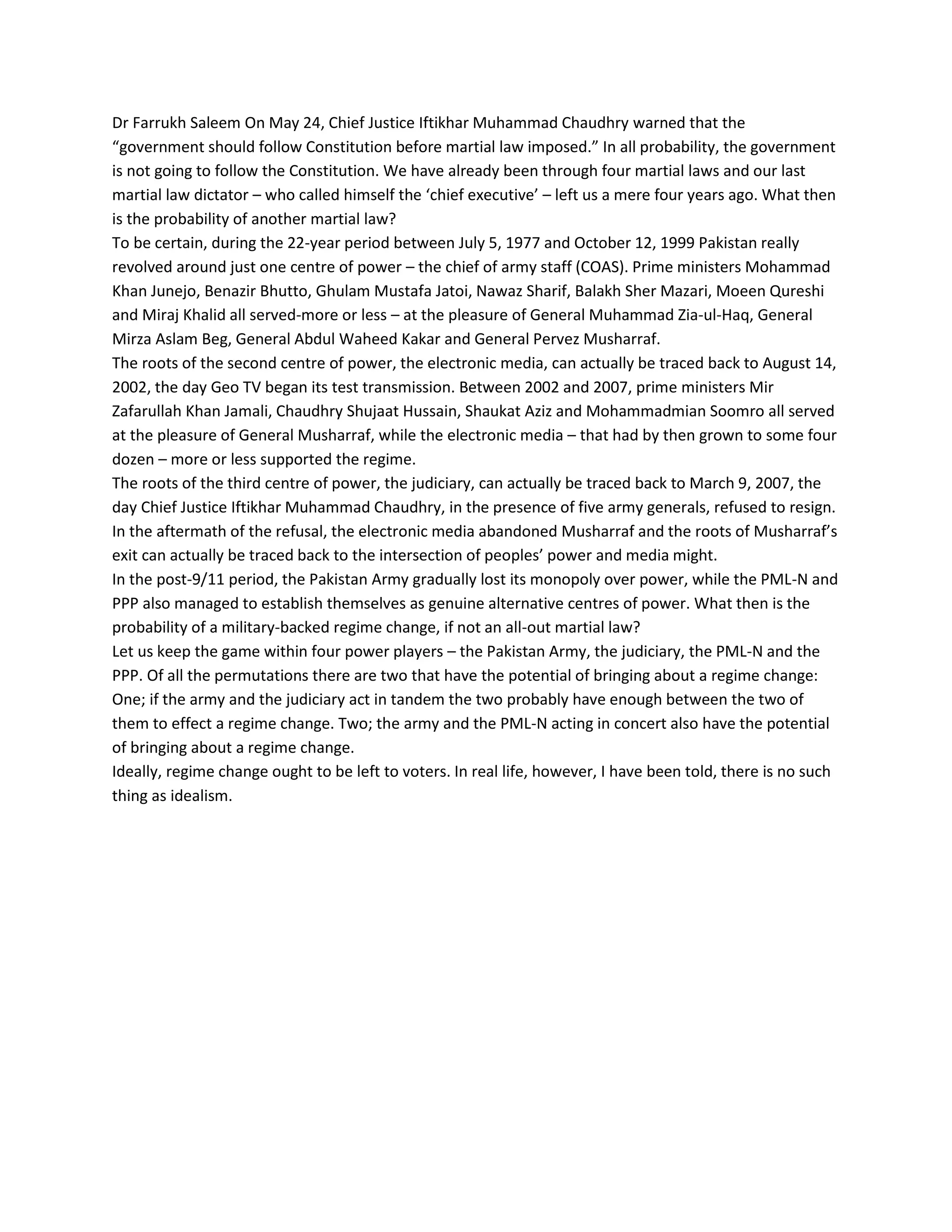The document discusses the history of power centers in Pakistan and the possibility of another martial law or military-backed regime change. It notes that Pakistan has had 4 martial laws previously and the last military dictator left power only 4 years ago. It analyzes that the army, judiciary, PML-N party, and PPP party are the four main current power players and that a regime change could potentially occur if the army allied with either the judiciary or PML-N. However, ideally regime changes should be decided by voters rather than other means.
